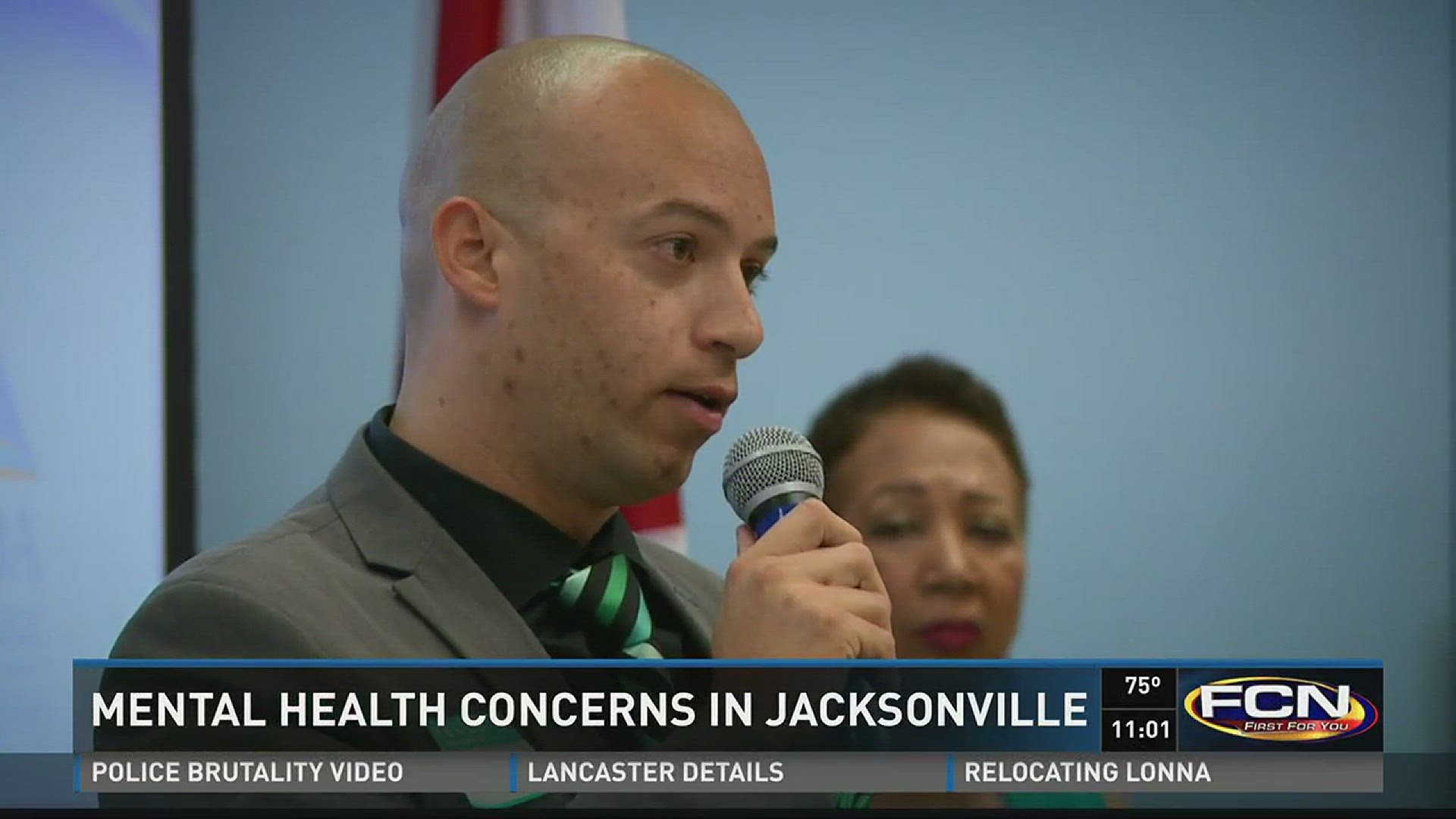JACKSONVILLE, Fla.—It's the largest mental health provider in Northeast Florida. Last year, its staff got more than 8,000 calls. Florida is 49th in the country when it comes to quality mental healthcare.
The problem is very prevalent here in Jacksonville. We aren't talking about a hospital. It's the Duval County Jail.
"Here we are post 18 months from what he is accused of doing and he still believes my mom is alive," Jonathan Harriford said. His brother is a diagnosed Schizophrenic and accused of killing their mother.
October 29, 2014: The Jacksonville Sheriff's Office is called to an Arlington Apartment. A woman has been killed. The suspect? Her son.
"He's not any better, what is wrong with that picture? You are supposed to be getting better in a hospital," Harriford said.
After retiring from the Marines and shortly before his mother's death, Harriford petitioned to have his brother Baker Acted, hoping his brother could get long term care.
"It should be more on the community-based providers, to do more than just a 72-hour Baker Act of just medication and kicking people out on the streets," he said. "Where is the long term commitment, where is the long term care?"
Sean Harriford and others living with mental illness have been to the jail multiples times. With that said, the jail in Jacksonville is the largest mental health provider in Northeast Florida. Something that doesn't sit well with Sheriff Mike Williams.
"Its not a good statistic, not only are we the largest mental health provider in Northeast Florida. We shouldn't be," Williams said.
Last year, thousands of mental health related 911 calls were made to JSO.
"I am shocked to know that, that's the statistics that we have to deal with, because it doesn't have to be that way if we had enough providers," Diane Givens said. Her ex-husband was a diagnosed Paranoid Schizophrenic.
She said he didn't start having episodes until months after they got married. After their divorce, his episodes got worse.
"The other episodes that he had, his mother didn't know who to take him to and I wasn't involved at the time," she said. "So she did what she thought was best which was call the police, which should know the the first line of defense."
Sheriff Williams said he also believes that communication between law enforcement and mental health providers can improve.
"Anything that we can do to help keep a police officer from meeting someone in crisis, that's what we don't want to have happen so the prevention end of this is what we need to work hard on and that is why we are here tonight."

